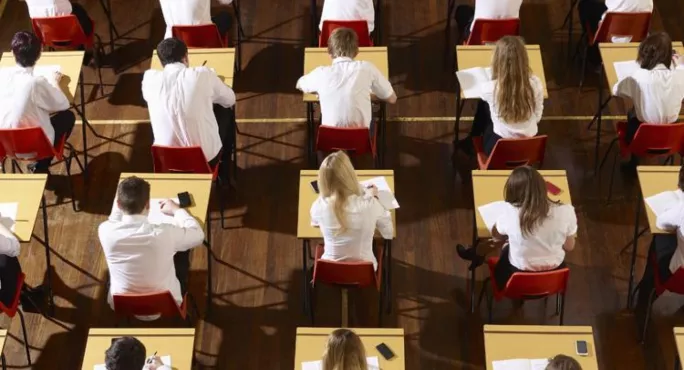‘This 19th-century examination mentality must end’

When senior-phase students in Scotland return to school for full-time education after their Easter holiday, it will not be to help rebuild relationships. It will not be to improve their wellbeing. It won’t be to improve their subject understanding.
It will be to fulfil the Scottish Qualifications Authority’s (SQA) hodgepodge of requirements for assessment this year.
In my subject, students were in an excellent position before the Christmas holidays. Our school had been relatively unaffected by cases of the coronavirus. Our students had been able to undertake practical work and had adapted to the restrictions and mitigations that were in place for their and our safety.
Also this week: Students ‘will know grades before results day’
Background: Scotland’s 2021 exams cancelled by education secretary
Exams replacement: SQA timeline for grading
Appeals: They must not result in downgrades, says children’s commissioner
SQA: Petition calls for the SQA to end ‘exams in all but name’
Flashback to August 2020: Are we headed for a second exams fiasco?
Some classes were even ahead in their coursework compared with previous cohorts. By early March, most had completed all assessable coursework in the subject.
SQA assessment puts student wellbeing at risk
Yet, despite the incredible effort and resilience demonstrated by these students, they are preparing to return to weeks of education that will be - and there’s no other word for it - cruel.
A schoolwide “no assessments in week 1” policy is great. But in my subject - and I’ve highlighted how well-positioned they are in terms of course completion - they will then have an assessment every week for three weeks. Some of these are unit assessments that could have been done online, had the SQA not acted like a vehicle stalled in front of a very obvious freight train restricting UASPs (unit assessment support packs) from being assessed in an online manner.
Universities have been using online assessments throughout the pandemic, so why can the national exam distributor for schools and colleges not make the switch when other education sectors have been able to? Were we not so well-positioned, my students wouldn’t even have a week’s gap before sitting their final assessment (which is, regardless of the usual SQA exams having been cancelled, effectively the 2020-21 exam).
Our subject is not the only one in which this will happen: it will be happening across almost every subject in every school in Scotland, affecting most senior students. How can this be justified?
And what is worse? Students won’t get exam leave. They’ll be in school, going from class to class, sitting test after test, with teachers spending hours and hours marking and giving feedback, only for students to go into yet another test.
The alternative assessment model isn’t a model at all. The SQA has thrown all responsibility back at schools, telling teachers who haven’t marked exam scripts before that it’s their job to mark and cross-mark exam scripts with other schools, some of whom are sitting a different assessment under different circumstances. The mistakes of last year were unfortunate, avoidable, yet (just about) understandable.
What is unacceptable is being in a scenario that’s worse than last year: student wellbeing has been ignored.
The SQA could have used this year and the unique circumstances to invest in technology to facilitate students who struggle to attend school, to help them sit verifiable and certifiable assessments from their home (if necessary). Instead, the SQA has proven that it is negligent, incompetent and burdened with a 19th-century examination mentality that is inflexible to the needs of teachers and pupils.
The writer is a secondary school teacher in Scotland
Register with Tes and you can read two free articles every month plus you'll have access to our range of award-winning newsletters.
Keep reading with our special offer!
You’ve reached your limit of free articles this month.
- Unlimited access to all Tes magazine content
- Save your favourite articles and gift them to your colleagues
- Exclusive subscriber-only stories
- Over 200,000 archived articles
- Unlimited access to all Tes magazine content
- Save your favourite articles and gift them to your colleagues
- Exclusive subscriber-only stories
- Over 200,000 archived articles
topics in this article



